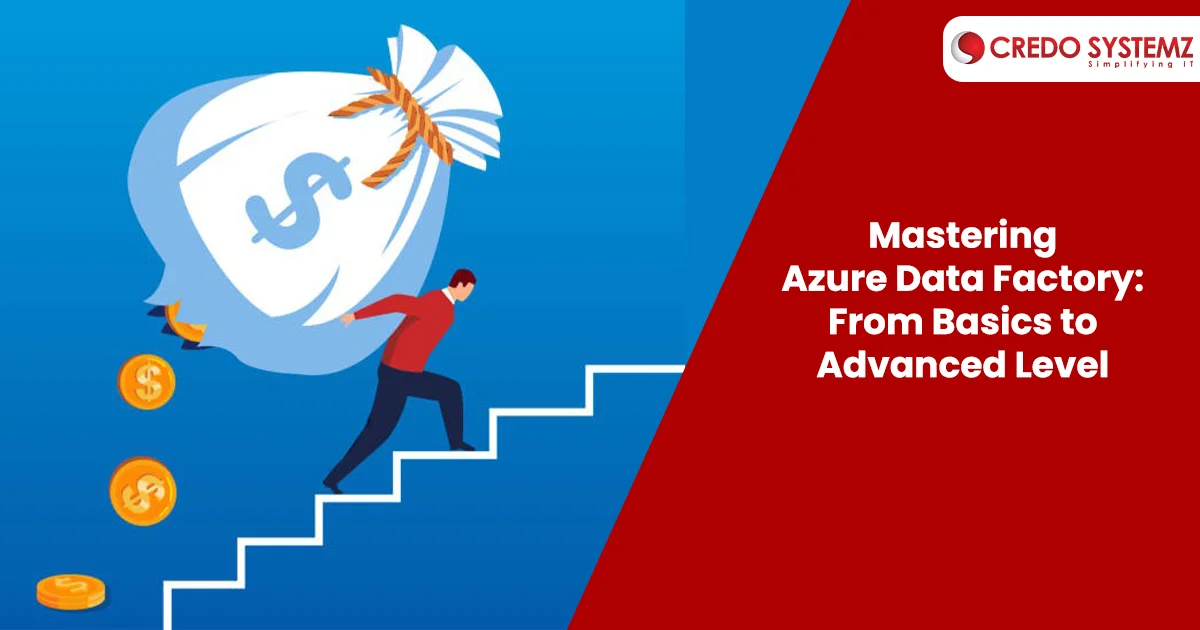
Introduction
In our data-driven world, businesses rely heavily on efficient data processing and management. Azure Data Factory emerges as a leading platform for data movement and data transformation workflows. To enhance the professional skills, mastering Azure Data Factory significantly elevates the data integration capabilities. Let’s explore the journey from the fundamentals to the advanced level of Azure Data Factory Career path.
Azure Data Factory
Firstly, Azure Data Factory is a cloud-based data integration service. It allows users to create, schedule, and orchestrate data workflows from various sources. Azure Data Factory achieves data ingestion, transformation, and loading data into destinations such as databases and analytics platforms. The key components of Azure Data Factory are:
- Data integration
- Data orchestration
- Data transformation
- Data movement
Career opportunities in Azure Data Factory
Azure Data Factory offers numerous opportunities for professionals in data data engineering, and cloud computing. The potential career roles in Azure Data Factory are:
- Data Engineer
- ETL Developer
- Cloud Data Engineer
- BI Developer
- Data Warehouse Architect
- Data Integration Specialist
Mastering Azure Data Factory
- Advanced data transformation
- Monitoring and management
- Integration with Azure services
- Mastering Advanced Techniques
- DevOps
- Monitoring and alerting
- Parameterization
Introduction to Azure Data Factory
To kickstart the Azure Data Factory learning path, Start understanding the core concepts and architecture of Azure Data Factory with: Pipelines, activities, datasets, and triggers, key components. Now, set up an Azure Data Factory instance in the Azure portal followed by:
- Configure linked services to connect to various data sources
- Creating the first pipeline to move data from source to destination.
Data Movement and Transformation
In the Azure Data Factory, Dive into the different data movement and transformation activities. Implement basic transformations and techniques for copying data between on-premises and cloud environments.
Advanced Data Transformations Skills
Mastering the complex data transformations using Azure Data Factory’s rich set of transformation activities. It includes:
- Data cleansing, deduplication, and aggregation techniques.
- Mapping data flows for visual data transformation.
Monitoring and Management
Learn to monitor pipeline runs and track data integration performance. Implementing best practices for managing and maintaining Azure Data Factory pipelines. Utilize Azure Monitor and other monitoring tools.
Integration with Azure Services
Gain knowledge in integration capabilities with Azure services such as:
- Azure Synapse Analytics,
- Azure Databricks,
- Azure Machine Learning.
Expertise in Azure Data Factory with Azure Data Lake Storage and Azure SQL Database for data solutions.
Mastering Advanced Techniques Parameterization
Implementing parameterization to create dynamic and reusable pipelines. Learn to generate datasets, linked services, and activities based on runtime conditions.
DevOps and CI/CD:
Incorporating Azure Data Factory into DevOps practices for continuous integration and continuous deployment (CI/CD). It allows automating deployment and version control of Azure Data Factory artifacts.
Advanced Monitoring and Alerting
Leverage advanced monitoring features for in-depth insights into pipeline performance. Setting up alerts and notifications to proactively monitor and respond quickly.
Conclusion
Mastering Azure Data Factory empowers aspirants to achieve great heights in their career. The knowledge of Azure Data Factory orchestrates complex data workflows, streamline data integration processes.
To achieve the skills of
Latest Post
